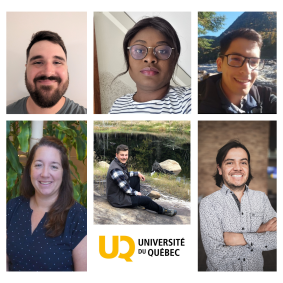Université du Québec scholarship winners
We are pleased to present the six INRS students who have been selected to receive a scholarship from the Université du Québec, in recognition of the diversity within our student community. Stéphanie Atkin, Chedeline Cherifin, Lütfi Ersay, Sergio Jiménez Rojas, Juan Esteban Ossa Ossa and Joël Wheeler-Noiseux have each been awarded $3,000 scholarships, helping to improve their study conditions.
Congratulations to all our recipients! A friendly awards ceremony will be held this autumn at all four research and training centers, where members of the community will have the opportunity to celebrate the success of our award winners.
We had the pleasure of asking our students a few questions, to help you get to know them better.
Stéphanie Atkin, doctoral student in the sociology of youth
What brought you to INRS? What do you take away from your experience to date?
My enrolment at INRS was motivated by a fervent desire to pursue graduate studies at a research university. I first enrolled in the master’s program in Knowledge Mobilization and Transfer offered at the Centre Urbanisation Culture Société, to develop skills aimed at fostering dialogue between scientific and practical experts and making scientific knowledge in the social sciences accessible to a wide audience.
As a master's student at the time, I had the opportunity to work as a management assistant at the Observatoire Jeunes et Société, a centre for the production and dissemination of scientific research on youth. This job quickly immersed me in what I was trained for at master's level, as well as stimulating my research interests in the broad theme of youth.
At the end of my master's degree, I decided to enrol for a doctorate. The decision to continue my studies at INRS was prompted by the tailor-made PhD programme, which would provide me with high-quality training at the crossroads of themes that stimulated my research project: youth, migration, and social relations.
I am now in the process of writing my thesis, and what I take away from my doctoral experience at INRS is: a significant acquisition of in-depth knowledge and skills specific to my field of research and to the profession of researcher; an immeasurable contribution from my research supervisor, in particular through her guidance, supervision and contacts with experts in her network, which have helped to promote my learning and led to some excellent collaborations, particularly internationally; significant support from INRS in putting my various student projects into practice (e.g. creation of the Interuniversity Colloquium on Youth (CIJ), participation in scientific conferences). INRS has also given me a great deal of support in putting my various student projects into practice (e.g. creation of the Interuniversity Colloquium on Youth (CIJ), participation in scientific conferences).
Can you describe the challenge and impact of the research presented in your doctoral project?
My doctoral research project examines the influence of migration and social relations on the passage to adulthood of young recent migrants to Québec. In these cases of chosen - and not sudden - migration (e.g., refugees, asylum seekers), the choice to go abroad is likely to be stimulated by transitions typical of the passage to adulthood and influenced by important people in the entourage.
This project comes at a time when, because of an ageing population and an economic situation characterised by a scarcity of labour, Québec is deploying migration policy strategies to attract migrants, especially young people. The large influx of this sub-population could be explained by the many programmes designed for them to enter the country, including study permits and temporary work permits. Quebec therefore appears to be fertile territory for the acquisition of autonomy and independence for these young people who migrate - often alone at a time of life when their relationships are in turmoil - and explore significant transitions in the passage to adulthood (e.g., continuing specialised studies, internships, first entry into specialised employment).
This thesis is original in that it aims to contribute to the advancement of scientific knowledge, on the one hand by updating the debate on the definition of youth, and on the other hand by looking more closely at the issue of migration in the specific case of young people, by examining it both from a relational perspective and as a transition to adulthood. This information could provide knowledge to guide the actions of the state and host organisations about immigrants concerned about their integration.
What does winning this scholarship mean to you?
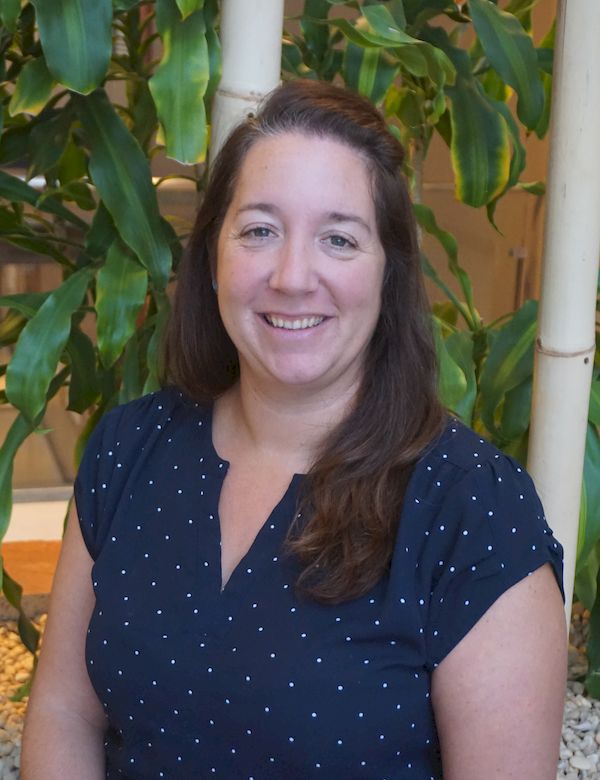
This bursary eases my financial burden, adds peace of mind to the pursuit of writing the final document of my thesis and promotes its productivity, given that the defence is scheduled for the winter 2025 session.
This recognition also makes me proud to have started and continued my graduate studies, despite the many challenges involved.
How do you see the future?
I am continuing to write the final document for my thesis, which I plan to defend in the winter term 2025. In the meantime, I will have the opportunity to take part in a short research visit to the Laboratoire de recherche en économie et sociologie du travail (LEST), in Aix-en-Provence, France. This visit will be an opportunity to discuss my thesis work with experts in the fields of immigration, youth and personal networks, as well as presenting a scientific paper at the 29th Journées du Longitudinal (JDL).
Chedeline Cherifin, master's student in urban studies
What brought you to INRS? What do you take away from your experience to date?
My background is a bit varied. With a bachelor's degree in psychology and a master's in urban planning, I wanted to find a discipline that would make the most of my two backgrounds. I was having trouble finding what I was looking for in France until a friend told me about his admission to urban studies at INRS. I went straight to the website and found a research project on 'crime, the urban environment and mental health'. I thought, this is exactly what I need! That's how my student career at INRS began. It must be said that it was my very first time in Canada. I was lucky enough to have good support at INRS and, above all, an extraordinary director who really supported me.
What I'll take away from this experience is the excellence and passion of the teachers. They are all dedicated and involved in the learning process. I also remember the friendliness of the student community.
Can you describe the challenge and impact of the research presented in your doctoral project?
My research project focuses on crime, the urban environment and mental health, in particular the impact of the hostile environment on the mental health of racialized groups, especially women. My research is part of CIHR (Canadian Institutes of Health Research) funding to support the project 'Assessing the broad impacts of neighbourhood crime on the mental health of marginalized and vulnerable populations'.
My research draws on the theoretical framework of intersectionality in order to pay attention to differences related to gender and racialization. It is an opportunity to apply literature on environmental racism in Canada and racial residential segregation.
This research has the potential to make important advances in the fields of environmental justice and healthy, sustainable urban development.
I am deeply honoured to win this scholarship. For me, it represents not only recognition of my academic efforts, but also the fuel that fuels my passion for research and motivates me to push back my limits. This scholarship is a valuable investment in my future and in my research career.
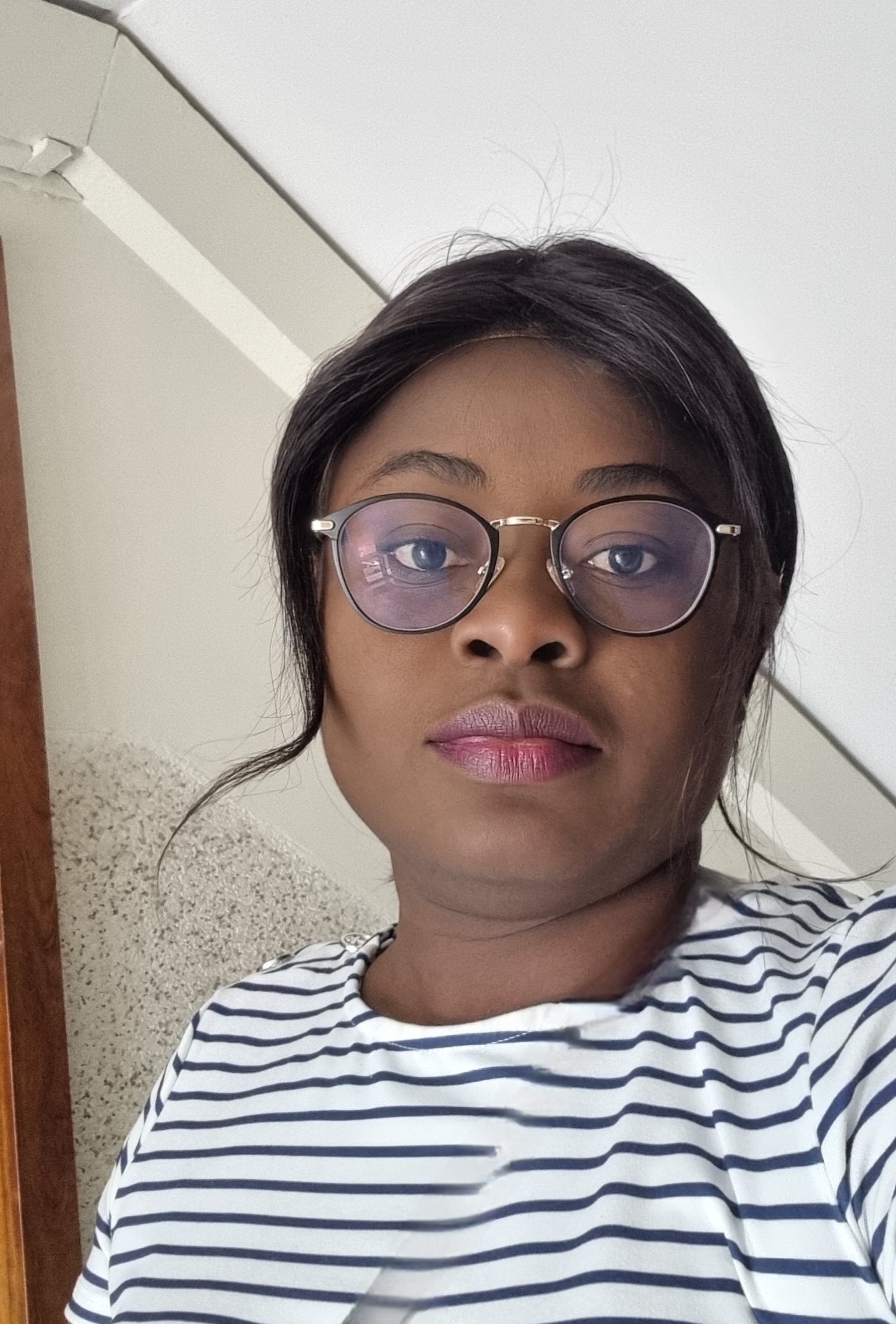
How do you see the future?
I'm currently in the data analysis phase at the research centre. This summer, I plan to finish my analyses and devote myself fully to writing my dissertation, which will be published in the form of a scientific article. I'm also thinking of going on to do a PhD and I'm looking forward to the challenges that await me.
Lütfi Ersay, PhD student in Earth Sciences
What brought you to INRS? What do you take away from your experience to date?
During email discussions with my thesis supervisor, Professor Renaud Soucy La Roche, about potential PhD projects, he and my co-supervisor, Professor Bertrand Rottier (Laval University), suggested my current project last year. My interest in critical and strategic minerals, which developed during my master's studies at the University of British Columbia, led me to pursue my PhD at INRS. Since September 2023, I have been engaged in my PhD studies at INRS. My experience so far has been very rewarding, providing me with a supportive environment to explore my research area in depth while taking advantage of the extensive expertise and resources available at INRS and Laval.
Can you describe the challenge and impact of the research presented in your doctoral project?
My PhD research is crucial in the field of clean technologies as it focuses on the genesis of graphite, an essential material for advanced technologies. The study focuses on graphite deposits with complex formation histories associated with multistage tectonometamorphism in the Grenville province of Quebec, Canada. Using a combination of in-situ U-Pb and Lu-Hf radiometric dating, phase equilibrium modelling, stable isotope geochemistry and graphite thermometry, I aim to assess the factors influencing graphite quality. These factors include the number, duration and temperature of metamorphic events, the source of graphite and its remobilisation by hydrothermal fluids or anatectic melting. This research has the potential to significantly improve the understanding and extraction of high-quality graphite, which is vital for technological advances and the mining industry.
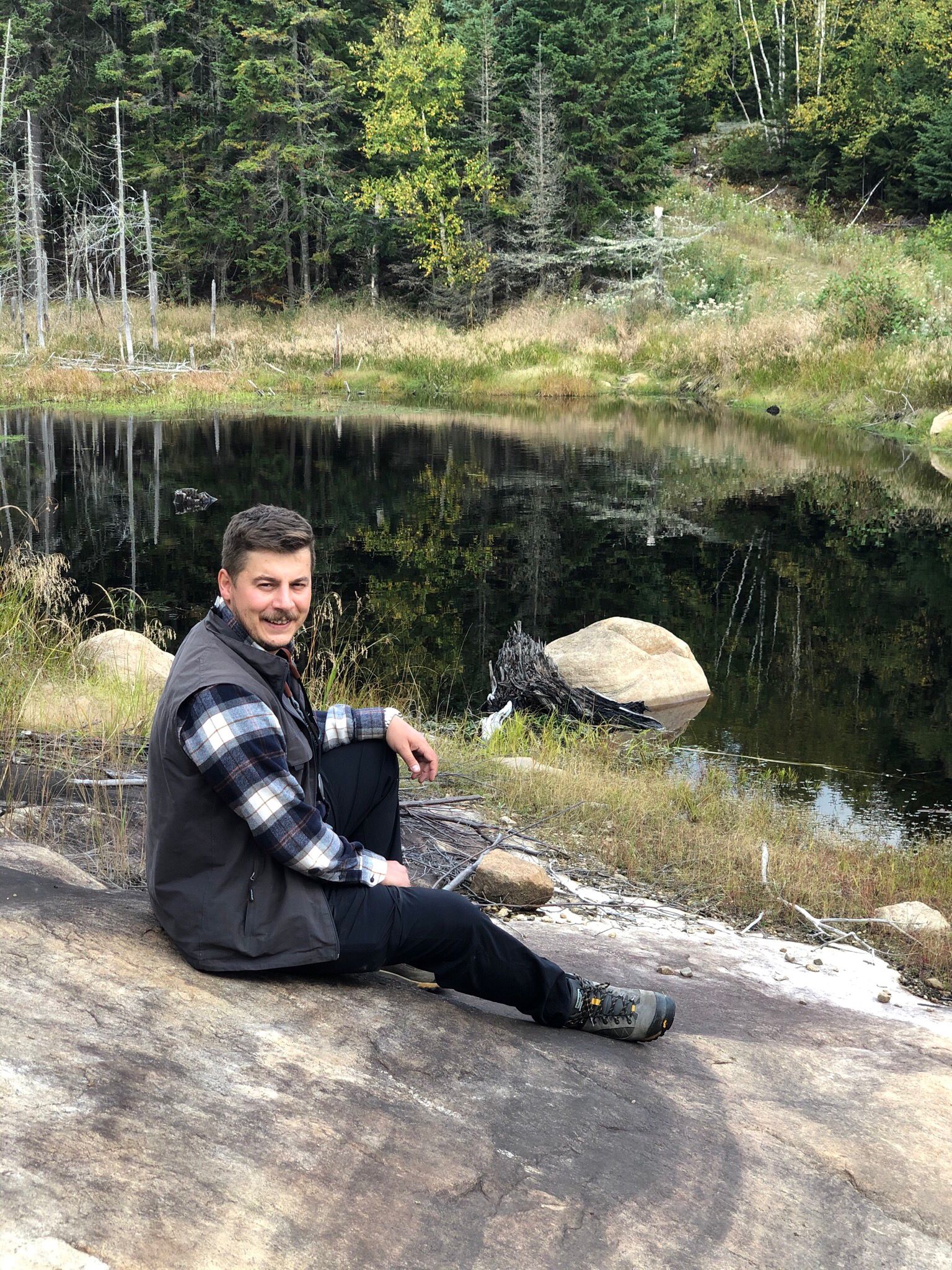
Winning this scholarship is extremely significant for me as it is crucial to maintaining my financial stability. The extra support eases the financial pressure, allowing me to concentrate more effectively on my studies and research. It represents not only financial relief, but also recognition of my work and potential in the geosciences, motivating me to continue to strive for excellence.
How do you see the future?
I am determined to publish my research in reputable journals and am keen to contribute to the development of our research programme. My goals are to enhance my expertise in geology and to have a positive impact on the culture and performance of the institute. I aspire to continue my career in academia or applied research institutes, where I can continue to make a significant contribution to advances in the geosciences.
Sergio Jiménez Rojas, master's student in population studies
What brought you to INRS? What do you take away from your experience to date?
My interest in research has led me to explore various studies and sources of inspiration. In Colombia, my home country, funding for social research is changing, making it difficult to obtain financial support. That's why I undertook an online master's degree with a university in Argentina. However, the geographical distance from the professors highlighted the need to be in the field to conduct my research.
My curiosity led me to discover the work of the most renowned research centres in the Americas. Canada, renowned for its advances in scientific research, attracted me, and INRS's commitment to diversity of subjects and an inclusive environment motivated my application.
My work experience with young people was useful in helping me make the transition to scientific studies in Quebec. A friend who is a doctoral student at INRS told me about her academic experience here. It was she who guided me through the initial steps to meet my current director, who is an expert on young people and who is also a source of overwhelming support for me.
Can you describe the challenge and impact of the research presented in your doctoral project?
I can divide my learning into three aspects of my life. On a personal level, I've gained confidence and self-assurance in my choices, as well as in revaluing the experiences I've had. As a member of a family, I have been able to share my scientific life with those close to me, setting an example of how family life and a research career can be harmoniously reconciled. Finally, on an academic level, I have updated my research methods and reinvented my learning methods.
The main issue is the relationship between workers and their jobs during the employment crisis caused by the pandemic. My study looks at the impact of workplace adjustments on employees' lives. I hope that my research will contribute to the social debate between workers, employers and Quebec society. The results of this study are closely linked to income conditions, the reconciliation of work and family life, physical and mental health conditions, and continuity in the world of work.
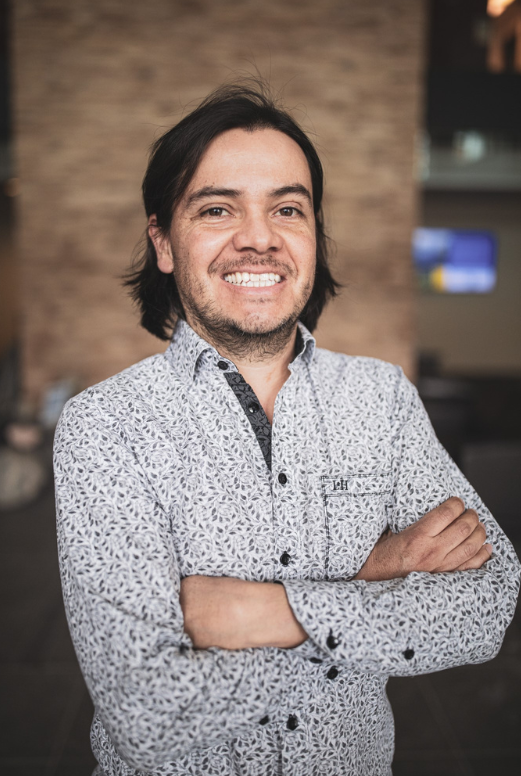
How do you see the future?
I can divide my learning into three aspects of my life. On a personal level, I have gained confidence and self-assurance in my choices, as well as a new appreciation of the experiences I have had. As a member of a family, I've been able to share my scientific life with those closest to me, setting an example of how family life and a research career can be reconciled harmoniously. Finally, on an academic level, I have updated my research methods and reinvented my learning methods.
Juan Esteban Ossa Ossa, PhD student in water sciences
What brought you to INRS? What do you take away from your experience to date?
During my undergraduate studies, I always had a passion for water resources issues. That's why I joined the hydraulic and environmental engineering research group, where I became much more passionate about the subject. So I went on to do postgraduate studies specialising in hydraulic and environmental engineering, while working for an engineering firm, where I had the opportunity to work on a number of applicable projects in the field of urban hydrology and infrastructure. After completing my studies at the National University of Colombia, I decided to work in the field to gain experience and decide in which area of hydraulics and hydrology I wanted to pursue my postgraduate studies. That's where I met INRS, thanks to a friend from university who was finishing her master’s at INRS and who strongly recommended that I come here to do my Masters. That's why I attended the INRS virtual open house in 2021, where I was able to learn more about the research being carried out at the Water, Land and Environment Centre. It was this experience and the INRS website that introduced me to INRS and the research being conducted there.
As I explored further, I discovered the innovative work of Professor Sophie Duchesne, which led me to apply for a master's degree in water sciences as part of a research project supervised by her. The opportunity to work on an interesting research project under the guidance of an exceptional supervisor was a deeply rewarding experience. The project enabled me to develop in-depth expertise in the field, while at the same time reinforcing my passion for research. At the end of my master's degree, I had the opportunity to pursue my doctorate in the same research group.
My time at INRS has been marked by an enriching and applied research experience, focused on real case studies, which has provided me with valuable experience for my future. Working alongside eminent researchers and evolving within a dynamic and multicultural student community has also played a crucial role in the development of my scientific skills. This collaborative and innovative atmosphere motivates me to continue to contribute actively to the advancement of knowledge in the field of hydrology and hydraulic engineering.
Can you describe the challenge and impact of the research presented in your doctoral project?
My research has focused on the sustainable management of stormwater in urban environments. More specifically, my PhD project focuses on the application of real-time control strategies for stormwater management. This project explores the use of modelling and optimised control techniques to effectively manage stormwater retention basins, taking into account the uncertainties and potential impacts of climate change. The expected impact of this research is to improve the resilience of stormwater management infrastructure to extreme weather conditions, while contributing to environmental sustainability. The results will provide guidelines for the implementation of adaptive control systems capable of responding proactively to the challenges posed by climate change and increasing urbanisation. In summary, this project aims to bring significant innovations to stormwater management, implementing advanced technological approaches to protect ecosystems and improve water quality in urban environments.
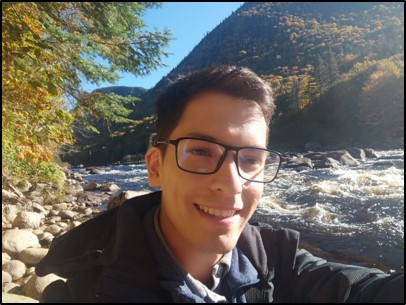
Receiving this scholarship from the Université du Québec is a huge source of pride and gratitude for me. It represents significant recognition of my efforts and my academic and scientific achievements throughout my career. This support from the INRS Foundation and its donors is not just financial; it also symbolises confidence in my potential and in the value of my research.
This scholarship will enable me to devote myself fully to my doctoral project, reducing financial constraints and giving me the freedom to concentrate on my research. It not only improves my study conditions, but also strengthens my motivation and determination to complete my research work.
I am deeply grateful to the INRS Foundation and its donors for their commitment to promoting research and advancing knowledge. This scholarship is an essential step in my academic career, and I am determined to make good use of it to maximise the impact of my work and honour the trust placed in me.
How do you see the future?
I am very enthusiastic about continuing to progress with my PhD project, which fuels my curiosity and research spirit. My immediate priority is to pursue my doctoral research activities with rigour and passion, using the skills and knowledge acquired so far to explore new perspectives in sustainable stormwater management.
Joël Wheeler-Noiseux, étudiant à la maîtrise en études urbaines
What brought you to INRS? What do you take away from your experience to date?
When I was doing my bachelor's degree in environmental geography, I was looking for a work placement to complete the credits required for my degree and to acquire new skills. A classmate had told me about his positive experience during his work placement at INRS. Passionate about research and unaware at the time of the existence of INRS, I was excited at the idea of doing an undergraduate placement there. There were several projects that interested me, but I decided to apply for a placement under the supervision of Marie-Soleil Cloutier, as it was on active mobility - a subject that particularly interests me.
Barely two weeks into my internship, I had decided to continue my master's studies in urban studies. I quickly fell under the spell of the close-knit community, the expertise of the teaching staff and the research opportunities offered at the Centre Urbanisation Culture Société.
At the end of my internship, I was offered the chance to do my master's degree on the walkability of urban environments for older people by joining a multidisciplinary research team that was about to start a project. This offer met my needs and interests, as well as allowing me to join the Pedestrians and Urban Spaces Laboratory, which had given me a warm welcome during my placement.
I was lucky enough to be able to take part in every stage of the research project, working alongside researchers and partners from all over Quebec: drafting the ethics application, planning, data collection, analysis, etc. This gave me the opportunity to learn a great deal about pedestrian and urban space research. This enabled me to acquire a wide range of skills and knowledge needed for research work, both inside and outside the academic world.
Can you describe the challenge and impact of the research presented in your doctoral project?
As well as having beneficial effects on physical and psychological health, walking is a way for older people to remain independent when getting around, to break the isolation they feel while maintaining a social life, and to contribute to a better quality of life. Given that Quebec's population is ageing and the many benefits of walking for the elderly, it is vital to study the walkability (pedestrian potential) of our urban environments for this segment of the population. By adapting our pedestrian infrastructure for the most vulnerable older people, the whole population will benefit.
The project also aims to create and test walking support programmes for the elderly, and to disseminate the results to organisations working with this clientele. Such programmes can be used to introduce older people who do not take part in walking to active lifestyle habits.
Finally, this research project will provide food for thought on how to better adapt our pedestrian infrastructures and on the needs expressed by the elderly. The first data-gathering exercise involved walking with dozens of older people in various urban environments in Quebec. Their experience and perspective are crucial, whereas most studies of this kind are carried out by means of audits performed by fit researchers.
Winning this scholarship is a great source of pride for me. Coming from a low-income household and being the first in my family to access higher education (see post-secondary education), this award is a reward for all my efforts. Navigating the academic machine without referrers and without any financial support from my family was a source of many challenges, which I believe I overcame with flying colours.
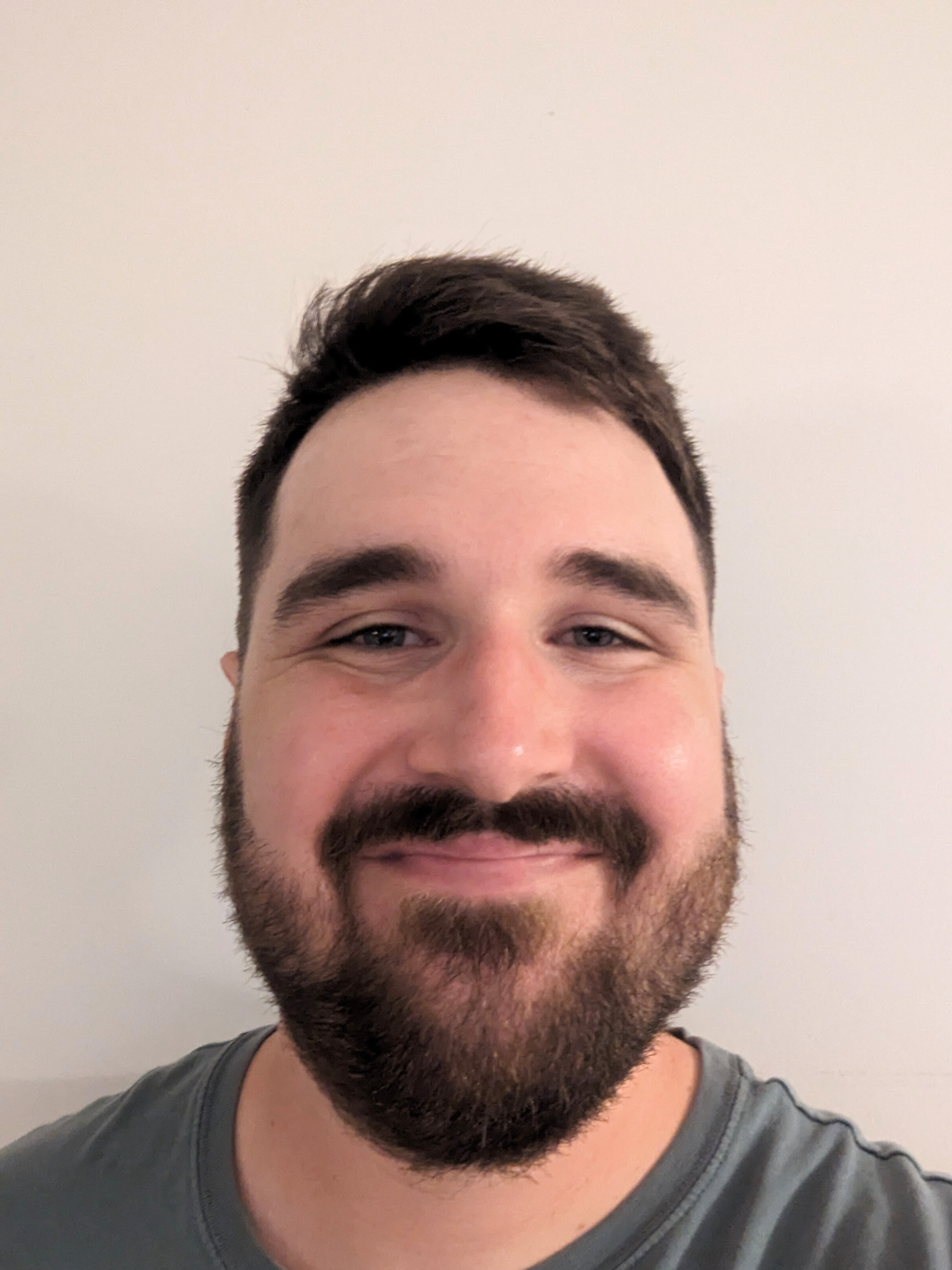
How do you see the future?
I'm currently at the stage of analysing the data from the commented routes. I plan to start writing my dissertation at the end of 2024 and submit it in the summer of 2025. I plan to enter the job market after my master's degree and I'm aiming to work for an organisation that works in the field of active mobility or for a municipality. My aim is to use my knowledge and experience to improve safety and opportunities for active travel in Québec.
About the Université du Québec Scholarships
Valued at $3,000, the Bourses de l'Université du Québec were offered for the first time in 2023 to promote access to university studies and to enhance the diversity of the student community at INRS. These scholarships improve the study conditions offered by INRS to the winners.
This second competition opened in January and closed on 12 April 2024. It was managed by the Service des études supérieures et de la réussite étudiante (SESRE) and attracted a great deal of interest from the student community.
The INRS Foundation would like to express its sincere thanks to the SESRE team for its invaluable support, as well as to the members of the selection committee and to all those who submitted entries, contributed to the dissemination of information and ensured the smooth running of the competition. We would particularly like to thank our generous donors for their ongoing support.

